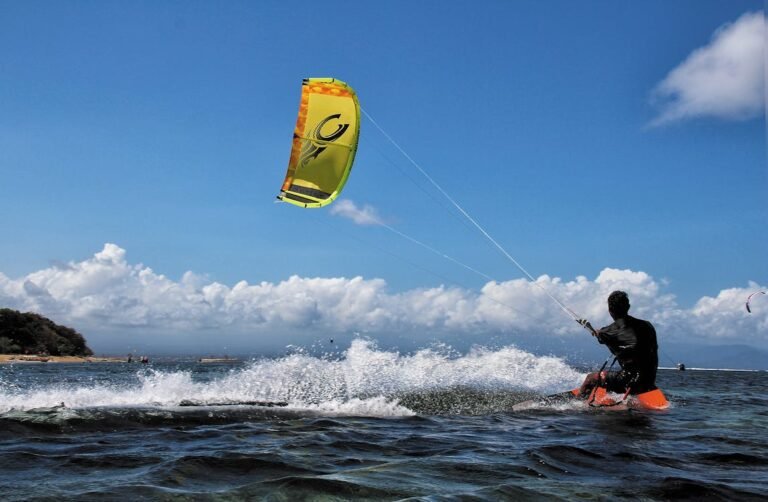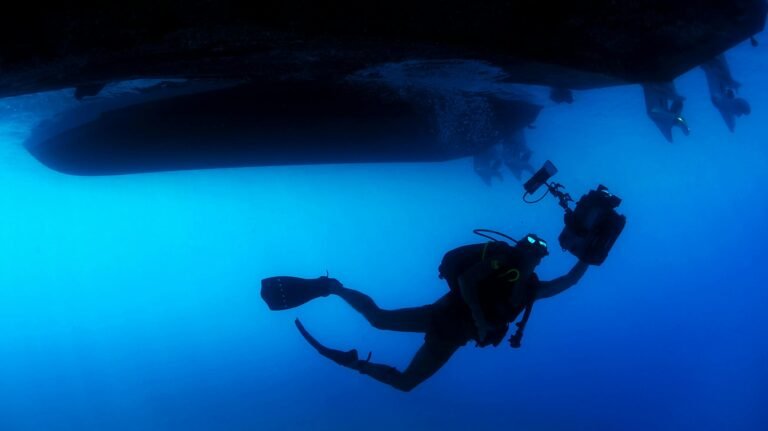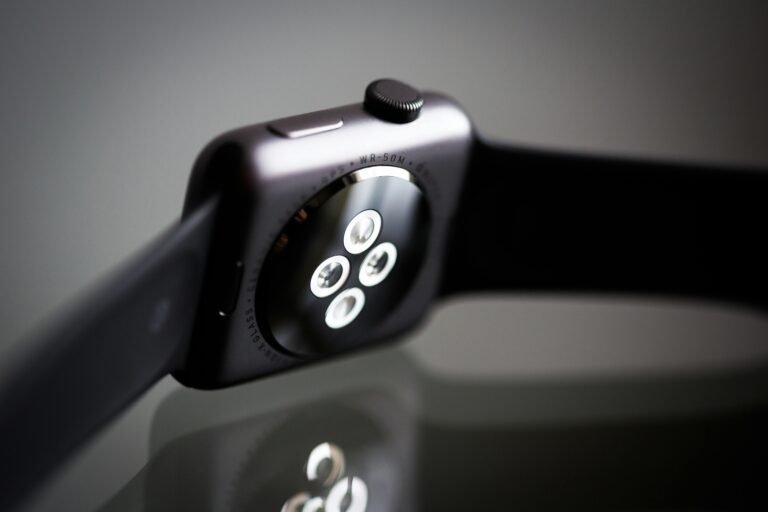The Best Complete Scuba Gear Packages for Beginners
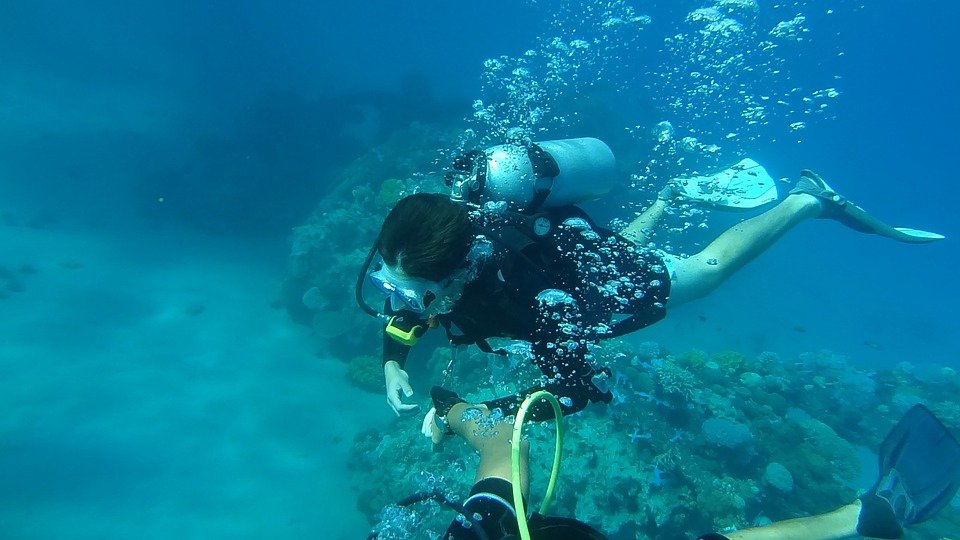
Choosing the right scuba gear is crucial for a safe and enjoyable dive, especially for beginners. Complete scuba gear packages are the ideal choice for new divers, offering convenience, compatibility, and great value.
Instead of piecing together individual components, these starter kits provide everything you need to start your underwater adventure.
In this guide, we’ll explore the best complete scuba gear packages designed specifically for beginners. Whether you’re diving locally or planning an trip, the right gear ensures your first dives are safe, comfortable, and stress-free.
What Makes a Great Starter Scuba Gear Kit?
When you’re just starting out, scuba gear can feel like a big investment—and it is. But here’s the deal: if you choose the right kit upfront, it’ll save you a lot of headaches later. Trust me, I’ve learned the hard way by buying cheap gear that didn’t hold up.
Durability and Quality Materials
Underwater, you want gear you can count on, not stuff that feels like it’ll quit halfway through. Stick to solid, proven brands and materials.
For example, regulators made from corrosion-resistant metal and BCDs with durable fabrics mean you’ll spend less time worrying about failures and more time enjoying the dive.
Ease of Use for New Divers
As a beginner, your brain’s already juggling enough. The last thing you need is gear with a steep learning curve.
Choose a setup that’s straightforward—like a regulator with clear airflow controls or a BCD with simple inflator/deflator buttons. You’re learning, not training for the pros (yet).
Comfort and Proper Fit
Here’s a rule I live by: if it doesn’t fit, it doesn’t work. A BCD that’s too tight will make you miserable, and fins that rub can ruin the experience.
Most starter kits offer adjustable gear, but don’t skip trying it on or checking size guides.
Value for Money
I’m a minimalist, so I’m big on buying only what you need. Complete gear kits often save you money and hassle, especially when you’re new.
That said, don’t let the price tag tempt you into choosing subpar gear. Your safety is worth a little extra.
Complete Packages vs. Individual Purchases
Piecing together gear sounds smart until you realize half the stuff doesn’t fit together properly. A complete kit takes the guesswork out of it.
Everything’s designed to work as a team, which makes it easier when you’re learning the ropes.
Benefits of Beginner-Friendly Designs
Starter kits are like training wheels—they’re designed to make your life easier. Lightweight BCDs, easy-breathing regulators, and simple dive computers are all features that cater to beginners.
They let you focus on the adventure instead of fumbling with complicated equipment.
Top Complete Scuba Gear Packages for New Divers
When you’re just starting, a good scuba gear package can feel like an investment in your freedom. The right setup means fewer headaches, fewer risks, and more time exploring underwater.
Here are some top-rated starter kits that balance quality, ease of use, and value.
Kit #1: Cressi Start Pro Scuba Gear Package
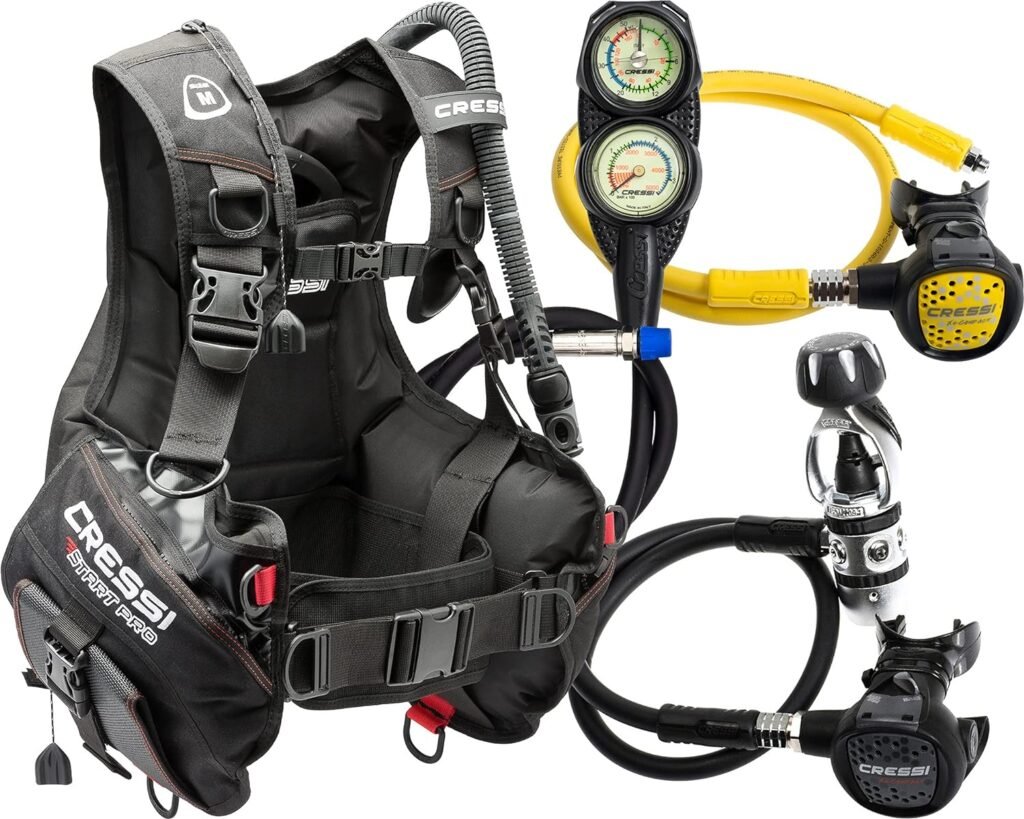
What’s Included:
- BCD (Cressi Start Pro)
- Regulator (Cressi AC2 Compact)
- Octopus (Cressi XS Compact)
- Pressure and depth gauge console
If you’re looking for a reliable all-in-one kit, Cressi’s got you covered. They’ve been in the diving game for decades, so they know what beginners need.
- Beginner-Friendly Features:
- The BCD is sturdy but lightweight, with simple straps that are easy to adjust.
- The regulator offers smooth breathing, even at deeper depths.
- The gauges are straightforward, with no extra bells and whistles to confuse you.
- Price Range:
Typically around $600–$800, depending on where you buy.
Kit #2: Aqua Lung Pro HD BCD i300C Dive Computer Titan Regulator Package

What’s Included:
- Pro HD BCD
- Titan Regulator
- ABS Octopus
- i300C Dive Computer
Aqua Lung offers a comprehensive package that combines advanced technology with ease of use, ideal for beginners aiming for a long-term investment.
- Beginner-Friendly Features:
- The Pro HD BCD features an integrated weight system and adjustable straps for personalized comfort.
- The i300C Dive Computer offers intuitive operation with backlighting and Bluetooth connectivity for dive data management.
- Price Range: Approximately $1,100–$1,300.
Kit #3: Cressi R1 BCD Donatello Dive Computer AC2 Compact Regulator Set
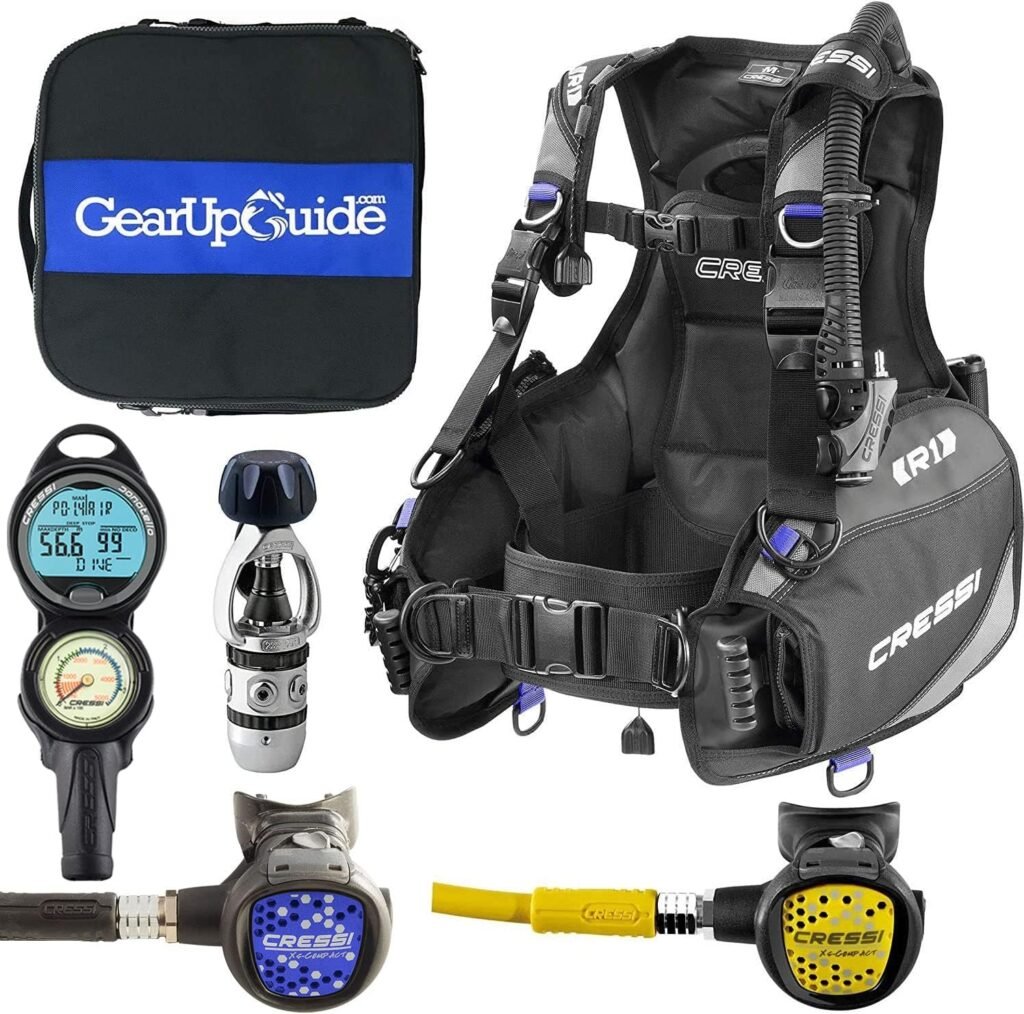
What’s Included:
- R1 BCD
- AC2 Compact Regulator
- Octopus XS
- Donatello Dive Computer
- Regulator Bag
This package from Cressi combines essential gear with modern technology, providing a balanced setup for new divers.
- Beginner-Friendly Features:
- The R1 BCD is designed for comfort and stability, featuring integrated weight pockets and multiple adjustment points.
- The Donatello Dive Computer offers a user-friendly interface with clear displays, aiding in dive planning and monitoring.
- Price Range: Approximately $1,000–$1,200.
These kits offer a range of features and price points, so you can choose one that fits your needs and budget. Whichever you pick, make sure it matches your diving goals and feels comfortable to use.
Essential Scuba Gear Components in Starter Packages

When you’re buying a starter scuba gear package, it’s important to know what you’re getting. Each piece of equipment serves a specific purpose, and understanding the essentials helps you choose a kit that suits your needs.
Let’s break down the key components you’ll find in most beginner scuba packages.
Buoyancy Control Device (BCD)
The BCD is like your diving backpack—but with a lot more functionality. It helps you control your buoyancy, so you can float, hover, or sink with ease.
- Why It Matters:
A well-fitting BCD makes it easier to stay comfortable and balanced underwater. For beginners, adjustability and simplicity are the two most important features. - What to Look For:
- Sturdy yet lightweight materials.
- Adjustable straps for a snug fit.
- Integrated weight systems (optional but helpful).
- Pro Tip:
Go for a BCD designed for recreational diving. Avoid over-complicating things with tech-heavy models until you’ve gained more experience.
Regulator and Octopus
Your regulator is what allows you to breathe underwater. The octopus is your backup regulator, essential in emergencies or for sharing air with a buddy.
- Why It Matters:
A reliable regulator provides smooth airflow, which means less effort and more enjoyable dives. - What to Look For:
- Easy-to-maintain designs.
- Lightweight construction to reduce jaw fatigue.
- Brightly colored octopus for quick visibility.
- Pro Tip:
Test the regulator’s airflow in-store if possible. It should feel natural and effortless, almost like breathing on land.
Dive Computer
A dive computer keeps you informed about key safety metrics like depth, bottom time, and no-decompression limits. It’s a game-changer for beginners who might not be ready to calculate everything manually.
- Why It Matters:
This device takes the guesswork out of your dive, helping you avoid accidents by tracking your limits in real-time. - What to Look For:
- Large, easy-to-read displays.
- Simple controls and navigation.
- Durability to handle underwater conditions.
- Pro Tip:
Many starter packages come with basic dive computers. While you don’t need all the bells and whistles, ensure it includes depth, time, and ascent rate monitoring.
Mask, Fins, and Snorkel
This trio might seem simple, but it’s fundamental to your underwater experience. Poorly fitting masks or heavy fins can ruin a dive before it starts.
- Why It Matters:
Comfort and fit are everything. A well-sealed mask prevents leaks, and efficient fins reduce strain on your legs during longer dives. - What to Look For:
- Masks with silicone skirts for better seals.
- Open-heel fins for adjustability (especially if wearing boots).
- Lightweight snorkels with purge valves for easier clearing.
- Pro Tip:
If you wear glasses, consider a mask with prescription lens options or frameless designs for easier customization.
When choosing a scuba gear package, make sure it covers all these essentials. Each component works together to enhance your safety and enjoyment underwater.
How to Choose the Best Scuba Gear Package for Your Needs

Selecting the right scuba gear package comes down to understanding your own diving goals and making informed decisions based on what works best for you.
Here’s how to narrow down your options without feeling overwhelmed.
Consider Your Diving Goals
Your diving plans dictate what kind of gear you’ll need.
- Recreational Diving:
If you’re diving for fun on vacations or exploring local dive sites, opt for a straightforward kit with reliable, beginner-friendly components. - Advanced or Professional Diving:
For those considering more technical dives or professional certifications later, investing in gear with more advanced features might save you from upgrading soon. - Travel-Friendly Gear:
If you plan to dive internationally, lightweight and compact kits are worth considering.
Pro Tip:
Start simple. You can always upgrade individual components as you gain experience.
Set a Realistic Budget
Scuba gear is an investment, but that doesn’t mean you need to overspend right away.
- Entry-Level Kits:
Expect to spend $600–$1,000 for a complete beginner setup. - Mid-Range Kits:
$1,000–$1,500 offers better materials and additional features. - Premium Kits:
Over $1,500, often with advanced technology like integrated dive computers.
Pro Tip:
Avoid buying the cheapest options unless they come from a reputable brand. Saving a few dollars upfront can cost you in repairs or replacements later.
Check Warranties and After-Sales Support
Reliable gear comes with good warranties and support. Look for:
- Long warranty periods (typically 1–2 years for most brands).
- Easy access to repair centers or replacement parts.
- Responsive customer service from the manufacturer.
Pro Tip:
Research how easy it is to get your gear serviced locally. Maintenance is key to keeping your equipment safe and functional.
Try Before You Buy
Scuba gear isn’t one-size-fits-all. Whenever possible:
- Visit a local dive shop to try on BCDs, fins, and masks.
- Test the regulator’s breathing comfort if a demo unit is available.
- Check for comfort with the full setup on, including weight distribution.
Pro Tip:
If trying gear in person isn’t an option, read reviews and consult sizing charts meticulously. Many brands also offer virtual fitting guides.
Ask for Advice
Dive instructors, dive shop staff, and experienced divers can offer valuable insights. Don’t hesitate to ask for recommendations based on their personal experiences.
Pro Tip:
Online forums and social media groups for divers are also great resources for honest opinions on various gear brands and packages.
By focusing on these factors, you can confidently choose a scuba gear package that fits your needs, budget, and diving aspirations.
Where to Buy Complete Scuba Gear Packages
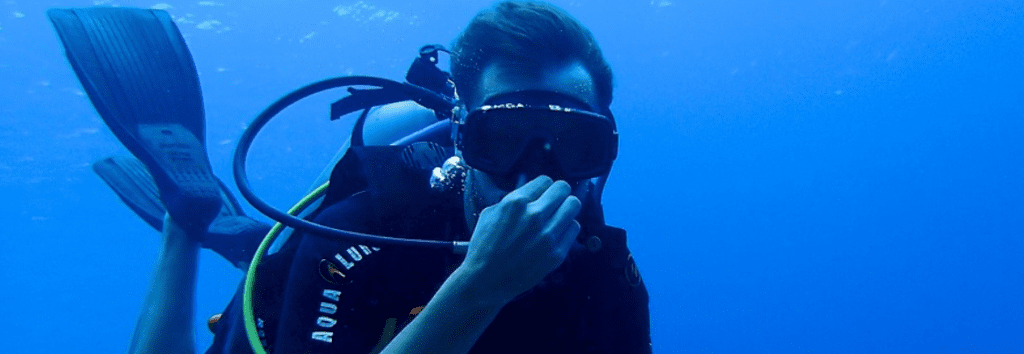
When it’s time to purchase your scuba gear, choosing the right retailer can make all the difference. From trusted dive shops to online giants, each option has its perks and drawbacks. Here’s a guide to finding the best place to buy your starter scuba gear package.
Online Stores
Online retailers offer a wide range of options and competitive pricing.
- Popular Platforms:
- Amazon: Known for variety and customer reviews. It’s a good starting point to compare prices and read experiences from other divers.
- Specialized Dive Shops: Websites like LeisurePro, Scuba.com, and Divers Direct focus on scuba gear and often have detailed product descriptions.
- Advantages:
- Convenient shopping from home.
- Access to global brands and models not available locally.
- Often includes discounts, seasonal sales, or bundles.
- Disadvantages:
- You can’t try the gear before buying.
- Risk of counterfeit products from unverified sellers.
Pro Tip:
Stick to reputable websites with verified reviews and clear return policies.
Brick-and-Mortar Dive Shops
For beginners, visiting a physical dive shop can be invaluable.
- What They Offer:
- Expert advice from staff who often have diving experience.
- The ability to try on gear to ensure proper fit and comfort.
- Hands-on demonstrations of how to use and maintain equipment.
- Advantages:
- Personalized service tailored to your needs.
- Reliable warranties and easier returns for defective items.
- Support for local businesses in the diving community.
- Disadvantages:
- Higher prices compared to online stores.
- Limited stock or selection, especially in smaller shops.
Pro Tip:
Even if you plan to buy online, visiting a local dive shop to test gear first is worth the effort.
Buying Directly from Manufacturers
Some brands sell their gear directly through their websites or authorized dealers.
- Advantages:
- Authentic gear with full warranties.
- Direct access to brand-specific customer service.
- Often includes exclusive deals or loyalty programs.
- Disadvantages:
- Limited ability to compare products from other brands.
- May not offer discounts found on third-party platforms.
Pro Tip:
Use manufacturer websites to research specs and compare options before buying.
Used or Second-Hand Gear
If budget is a concern, used gear might seem appealing, but proceed with caution.
- Where to Look:
- Dive forums and classified ads.
- Local dive shops often carry refurbished or lightly used gear.
- Advantages:
- Significant savings compared to buying new.
- Good for items like fins or masks that are less reliant on intricate technology.
- Disadvantages:
- No warranties or guarantees on performance.
- Risk of wear and tear compromising safety.
Pro Tip:
Avoid buying used regulators, dive computers, or BCDs unless they’ve been professionally serviced and certified.
By weighing your options and doing a bit of research, you can find the perfect place to buy your scuba gear package. Whether you prioritize convenience, personalized service, or budget, there’s a solution that fits your diving journey.
Conclusion
Starting your scuba diving journey is one of the most exciting decisions you can make. The underwater world offers unmatched freedom, adventure, and a chance to connect with nature in ways few other activities can provide. But as with any great adventure, preparation is key—and that starts with choosing the right scuba gear.
By opting for a complete scuba gear package designed with beginners in mind, you save yourself the stress of piecing together a setup and ensure everything works seamlessly.
From top brands like Cressi, Aqua Lung, and Mares, to understanding the essential components like BCDs, regulators, and dive computers, you now have a clear roadmap to finding the gear that suits your goals.
Remember, this is an investment in your safety and enjoyment—so take your time, try things on, and don’t hesitate to ask for advice.
Once you’ve got your kit, you’re not just prepared for your first dive—you’re ready to embark on a lifetime of exploration.
The ocean is waiting. Gear up, take the plunge, and enjoy every moment beneath the waves.
FAQs
Affiliate Disclosure
This article may contains affiliate links. If you make a purchase, I may earn a small commission at no extra cost to you. Thank you for your support!
